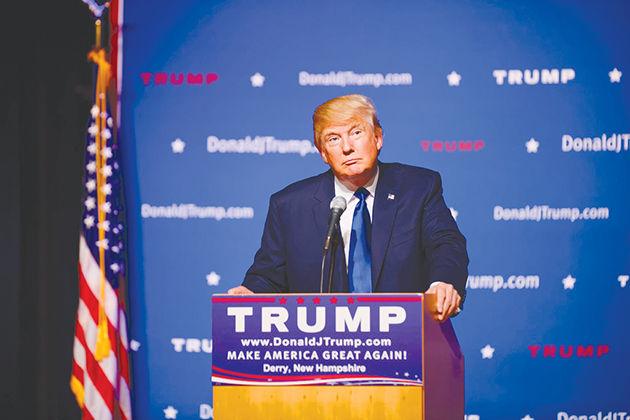A little over two months after winning the presidential election, President-Elect Donald Trump will shed the “elect” from his title and be sworn in as the 45th President of the United States of America Friday. The theme of the ceremony will follow Trump’s campaign slogan: “Make America Great Again.”
Trump’s election was met with mixed reactions across the country and he comes into office with the lowest approval ratings in history. Despite Trump being a polarizing figure, though, communication professor and fellow at the Public Policy Research Institute Kirby Goidel said he doesn’t expect anything other than a peaceful ceremony.
“All inaugurations are reminders of the peaceful transfer of power,” Goidel said. “Without this, you don’t have a democracy. It is also the end of a historic presidency which adds to its poignancy.”
Randy Kluver, communication professor, said he expects Trump’s inaugural address to focus on unifying the country rather than alienating half of it.
“The inauguration is a national ritual, a time where the nation comes together,” Kluver said. “We expect pledges from the nation to come together.”
Several members of the Democratic Party, including U.S. Representative John Lewis, have said they will not be attending.
“We’ll likely see more Democrats deciding not to attend, and there will likely be at least some protests and demonstrations,” Goidel said.
Kluver said the boycotts are not surprising given the president-elect’s approval rating and conflict-filled campaign.
“He comes in with lower approval ratings than almost anyone in memory — in the lower 40 percent,” Kluver said. “I can’t recall the last time this many members of Congress have said they will boycott an event like this.”
Kluver said while he agrees with the boycotts as a matter of principle, he sees it as a source of potential problems.
“What this does is set up a conflict that will become a defining part of the upcoming years, and I don’t see how that helps,” Kluver said.
Chairman of the Texas A&M College Republicans and petroleum enginnering junior David Isenhour said while the protests would attract attention, he expects the ceremony to go well.
“I expect it to go smoothly from a security standpoint, but this is a different time,” Isenhour said.
Isenhour said he doesn’t expect the protests to make much of an impact on the event itself, rather only on the media coverage of the event.
“There won’t be much headway from the politicians missing it, but the biggest difference will be the televised attention to protest” Isenhour said. “I would like to see everyone put the partisanship, the pride aside, the left and the right, to come together and show that plurality still matters.”
Trump will also be writing his own speech, which is unusual for the ceremony.
“Hopefully he comes out and says he wants to work with both sides, and to be that unifying figure we saw on election night,” Isenhour said.
The inauguration ceremony will begin at 11 a.m. Friday. Trump will be sworn in by Supreme Court Chief Justice John Roberts. Attendees will include former President George W. Bush and former First Lady Laura Bush, as well as Trump’s election rival Hillary Clinton and her husband and Former President Bill Clinton. All major TV networks will air the ceremony, and it will be livestreamed on Twitter.
Trump to be sworn in Friday, Texas A&M experts weigh in
January 18, 2017
Photo by Via Creative Commons
President-elect Donald Trump will be sworn in at Friday’s inauguration ceremony in Washington, D.C.
0
Donate to The Battalion
$1815
$5000
Contributed
Our Goal
Your donation will support the student journalists of Texas A&M University - College Station. Your contribution will allow us to purchase equipment and cover our annual website hosting costs, in addition to paying freelance staffers for their work, travel costs for coverage and more!
More to Discover










